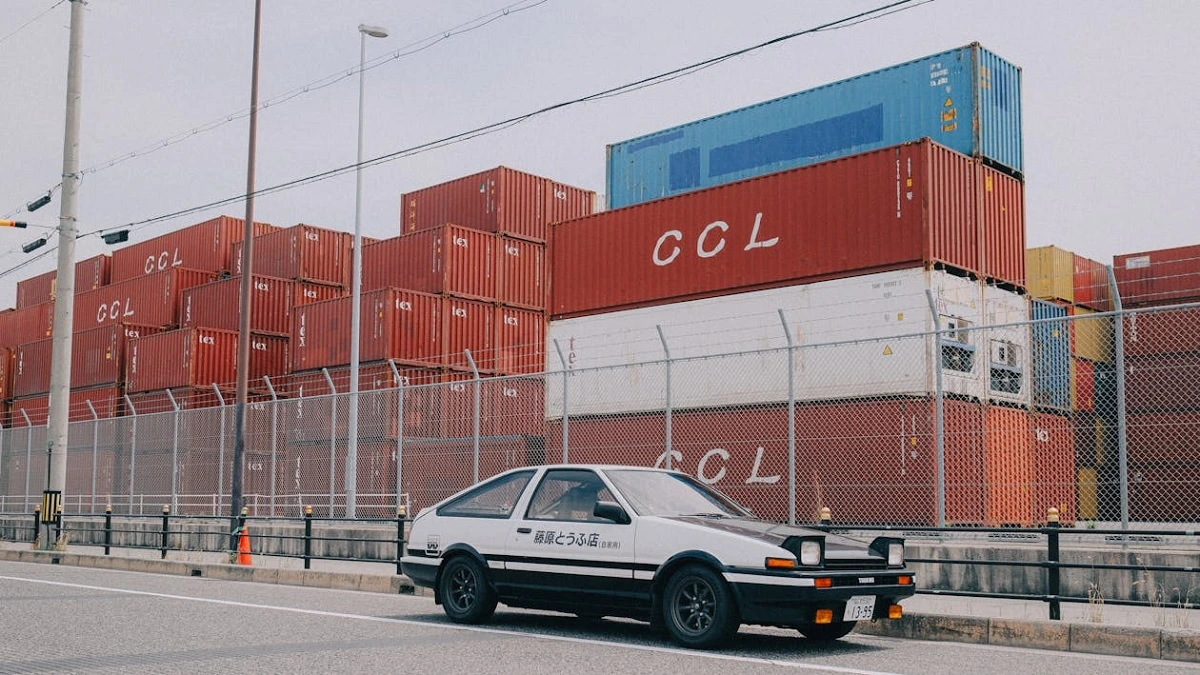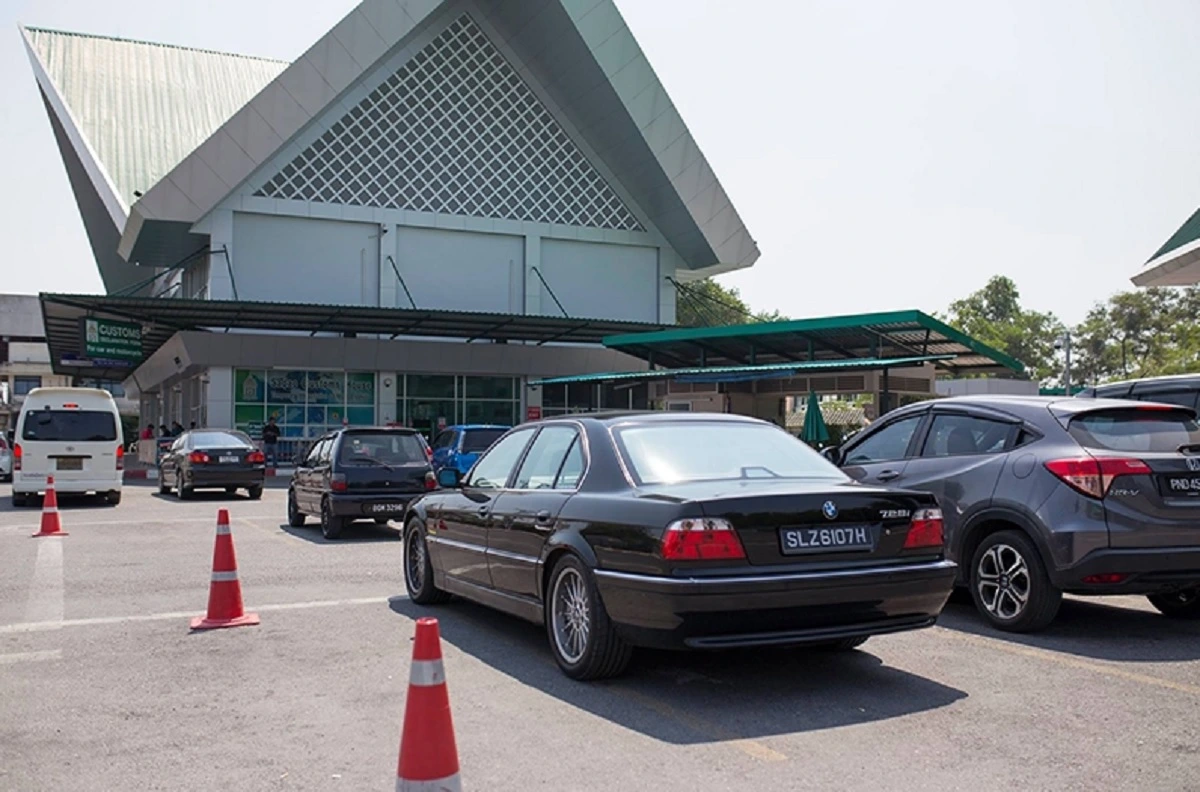Can you import your car into Thailand

Thinking of bringing your car to Thailand? Whether you’re relocating or planning an extended stay, importing your vehicle can be a complex process. Understanding the regulations and requirements is crucial to ensure a smooth transition. Thailand has specific rules for vehicle imports, including taxes, duties, and paperwork.
From understanding customs procedures to knowing what documents you’ll need, we’ll cover everything you need to know. By the end, you’ll have a clear roadmap to successfully import your car into Thailand.
Can you import your car into Thailand?
Yes, you can import your car into Thailand, but the process involves several steps and strict regulations. The Royal Thai Customs oversee this procedure to ensure compliance with Thai laws. You’ll need to familiarise yourself with the necessary documentation, taxes, and duties required.
Basic requirements
- Ownership Proof: You must provide proof of ownership for a minimum of six months prior to import.
- Visa and Work Permit: Exhibiting a valid Thai visa and work permit is essential for non-diplomatic importation.
- Application Form: Completing an import application form from the Department of Foreign Trade is mandatory.
Customs procedures
Customs procedures in Thailand can be complex. First, prepare an inventory list of the car and its parts. Then, submit this list to the Royal Thai Customs. Your car will undergo an inspection to verify the details.
Taxes and duties
Importing your car involves significant taxes and duties:
| Type of Tax/Duty | Rate |
|---|---|
| Import Duty | 80% of the car’s CIF (Cost, Insurance, Freight) value |
| Excise Tax | Ranges from 30% to 50% based on engine size |
| Local Tax | 10% of the combined import duty and excise tax |
Required documentation

- Vehicle Registration: The original vehicle registration papers are essential for both temporary and permanent importation. This document serves as proof of ownership and must be presented to customs officials upon entry into Thailand.
- Bill of Lading: The bill of lading is a critical document that provides shipping details of the vehicle. It acts as a receipt for the goods and outlines the specifics of the transportation agreement between the shipper and the carrier. This document is required for both types of importation.
- Passport Copy: A copy of the importer’s passport is necessary for identification purposes. This document verifies the identity of the person importing the vehicle and must be included in the submission to customs.
- Import Permit: An import permit is mandatory for permanent importation and is issued by the Ministry of Commerce. This permit must be obtained before the vehicle arrives in Thailand. Without it, the vehicle may be seized and the importer could face significant fines.
Types of importation
Importing your car into Thailand for 2024 involves understanding the distinct types of importation: temporary and permanent. Each type has specific requirements and procedures which will affect how you proceed.
Temporary import of personal vehicle

Temporary importation of your car into Thailand is possible for a short period without significant red tape if it meets requirements.
Clearance process
Upon arrival, your vehicle must pass through Thai customs. You’ll need to submit a Temporary Import Permit application form. A customs officer checks your documents and inspects the car. Anti-smuggling and safety regulations must be met. Ensure the vehicle is registered in your name. The clearance process can take several hours, so plan accordingly.
Deposit of guarantee
A deposit of guarantee is required for temporary importation. It serves as a security bond. The deposit amount varies based on the car’s value and intended stay in Thailand. The bond is refundable once you re-export the vehicle within the permitted period, usually six months. Ensure you keep receipts and documentation safe to claim the refund.
Required paperwork
You’ll need several documents for temporary car import in 2024:
- Passport
- Visa
- Vehicle registration certificate
- Proof of ownership for at least six months
- Temporary Import Permit application form
- Insurance proof
Taxes and duties
For temporary importation, you may be exempt from paying full taxes and duties. Nevertheless, you must pay a consumable tax based on the car’s CIF value. Ensure compliance with local regulations to avoid penalties. Temporary importation rules can change, making it essential to stay informed.
By adhering to these guidelines, you can temporarily import your car into Thailand efficiently and legally.
Permanent import of personal vehicle

When importing your car into Thailand permanently, there are several important steps and requirements to consider.
Importation authorisation process
Before importing, you must obtain permission from the Thai Government. First, apply for an import permit from the Ministry of Commerce. This involves submitting an application form, providing proof of residency, and demonstrating ownership for at least six months prior. Upon receiving the permit, your car can legally enter Thailand.
Essential documentation
Organise the necessary paperwork for a smooth import process. Essential documents include:
- Import permit from the Ministry of Commerce
- Proof of ownership (registration and title)
- Valid Thai visa
- Work permit
- Vehicle insurance certificate
- Inventory list of the car’s contents
Ensure all documents are in order to avoid delays at customs.
Taxes and import duties
Importing a car into Thailand involves paying several taxes and duties. Key charges include:
- 80% import duty on the car’s CIF value (Cost, Insurance, Freight)
- Excise tax ranging between 30% and 50%, depending on engine size
- Local tax at 10% on the sum of the import duty and excise tax
Prepare for these costs to ensure compliance and avoid penalties.
Insurance requirements
Car insurance is mandatory in Thailand. You must provide proof of insurance upon import. It should cover third-party liability at a minimum. Consider comprehensive insurance for additional protection. Local insurers can offer policies that meet Thai regulations.
By fulfilling these requirements, you ensure a smoother process when importing your car into Thailand permanently in 2024.
Tips and recommendations

Confirm Car Eligibility: Ensure your car is eligible for import into Thailand. Cars over five years old often face restrictions, so verify this before proceeding.
Gather Necessary Documentation: Organise essential paperwork, including an import permit from the Ministry of Commerce. Also, have proof of ownership, vehicle identification, insurance documents, a shipping invoice, and a state emissions certificate, especially for new cars.
Understand Tax Implications: Be aware that import duties can reach up to 80% of the car’s CIF value. Additionally, you must account for excise and local taxes, which significantly increase the overall cost.
Choose the Right Shipping Method: Select a reliable international shipping company. Ensure the company complies with international shipping standards to avoid delays and complications at the port of entry.
Prepare for Customs Clearance: Submit a customs declaration at the port of entry with all required documents. Customs officials will inspect your vehicle to verify its condition and documentation.
Consider Temporary or Permanent Importation: Decide whether temporary or permanent importation suits your needs. Temporary importation allows you to bring your car into Thailand duty-free for up to six months, while permanent importation incurs higher costs and taxes.
Secure Appropriate Insurance: Obtain insurance that meets Thai legal standards, covering your car during shipping and after arrival. Ensure the policy is based on your car’s value, usage, and length of stay in Thailand.
Other useful resources about automotive in Thailand
- Buying a car in Thailand
- selling car in Thailand
- Automotive laws and regulations in Thailand
- Electric vehicles(EVs) Thailand
- Custom cars in Thailand
- Luxury cars in Thailand
- Motorbike rules in Thailand
- Motorcycle rules in Thailand
- Buying a motorcycle in Thailand
- Selling motorcycles in Thailand
Latest Thailand News
Follow The Thaiger on Google News:


























